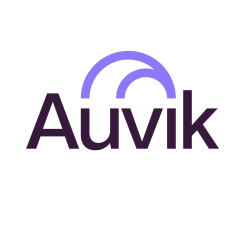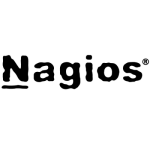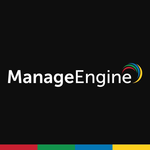What is our primary use case?
We are a managed service provider, so we use the solution to monitor our customers' network environments.
Auvik provides a single integrated platform for network monitoring, but we integrate with other platforms for ticket generation and another dashboard we use, BrightGauge.
How has it helped my organization?
The alert generation is excellent; we need to be able to look at a customer's network and see if there are any issues we should be aware of, like emergencies and offline devices. Auvik provides this and alerts us to issues before the customer calls about the problem. We had a case where a device failed, the solution notified us right away, and we were able to use the automatic backup configuration, which we restored to a replacement device.
What is most valuable?
The monitoring and alerting are the most valuable features.
The automated configuration backups are another excellent capability.
Auvik provides excellent visibility into our remote and distributed networks, which is especially helpful when onboarding a new customer. The solution offers great insight into the network we're taking over from a single pane of glass. This gives us situational awareness, allowing us to address issues, find credentials, configure, and correctly monitor network elements.
What needs improvement?
The solution's monitoring and management functions are more challenging than needed; the interface is sometimes unintuitive and confusing. That may be because I've never had formal training with the tool, so it can be difficult to navigate sometimes. This can be frustrating, as I sometimes need to go back to square one and follow multiple steps to get back to where I've just come from. For example, to access a list of devices I was just looking at because there isn't a direct path back.
I've had some issues where the solution repeatedly discovers a device I don't want to manage and alerts me about it. This is probably me not using the tool correctly, or it could be Auvik recognizing the device in different ways.
The solution sometimes finds networks and devices it sees, but I don't know where to begin looking to try and find out where it could have seen these from. Therefore, I want to know the path or details about the discovery, where the tool discovers a new network, and what way it takes to get to it and find that it's available to scan.
I also want Auvik to identify itself differently on networks because we have some firewalls that identify it as a potential risk, not only because of what it's doing but also because Auvik can present like a foreign intrusion into the network, which scares some of our customers.
For how long have I used the solution?
We've been using the solution for almost two years.
What do I think about the stability of the solution?
The stability is excellent; we've never had a stability issue.
What do I think about the scalability of the solution?
The tool scales well, though we have yet to push its limits. We can manage multiple customers, and it's a tenant-based solution, so Auvik is as scalable as we need it to be.
How are customer service and support?
I never had to contact tech support.
Which solution did I use previously and why did I switch?
We used MS Power Automate to monitor some of the devices we now use Auvik for, and Auvik does a better, more thorough job. We've also used the Kaseya VSA platform for monitoring. Still, Auvik is geared more towards the network, discovery, and monitoring aspects, which works better for us than other platforms.
How was the initial setup?
I wasn't involved in the initial deployment, though I've been involved in the deployments to some customers' networks. In terms of maintenance, there are specific tasks we carry out as part of our obligations as an MSP around monitoring Auvik, but we don't need to do any maintenance with Auvik itself.
What's my experience with pricing, setup cost, and licensing?
I'm an engineer, so I'm unfamiliar with the cost of Auvik and the other options on the market. My advice to those concerned about pricing is to do their homework and compare all the offerings. They could also demo Auvik to see if it meets their needs and justifies the cost.
What other advice do I have?
I rate Auvik seven out of ten.
A monitoring solution like Auvik is essential for any MSP, but other contenders exist in the marketplace.
Regarding reducing repetitive, low-priority tasks through automation, we're not currently using the solution for that. We could benefit from this area, but we have yet to leverage the capability.
As far as helping to keep device inventories up-to-date, I imagine the solution would help, but we don't use it for inventory.
As to whether the solution reduced our mean time to resolution (MTTR), I don't have access to those reports, but it's unlikely it impacts our resolution time. We don't continually monitor Auvik or have a staff member dedicated to working with it full-time. If we took advantage of the automation, I can see how the tool would reduce our MTTR, but we're not currently leveraging it as effectively as we could be.
My advice to others evaluating Auvik is they will need the hardware to run the collector at customer sites.
Which deployment model are you using for this solution?
Hybrid Cloud
If public cloud, private cloud, or hybrid cloud, which cloud provider do you use?
Other
Disclosure: PeerSpot contacted the reviewer to collect the review and to validate authenticity. The reviewer was referred by the vendor, but the review is not subject to editing or approval by the vendor.

















